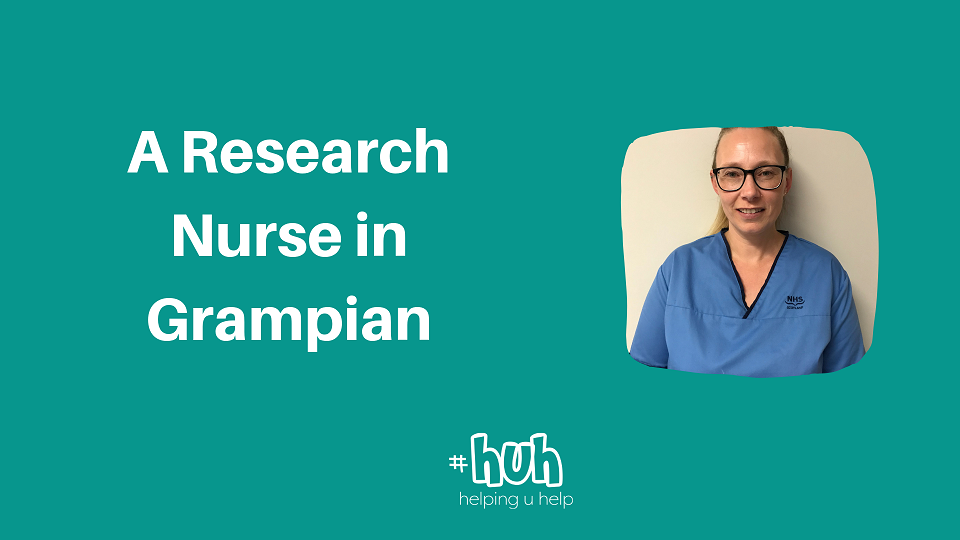NHS Grampian employs many research nurses to support clinical research.
Jo Baxter is a Vascular Access and Clinical Research Nurse, based at Aberdeen Royal Infirmary. She is involved with a research study in the renal dialysis unit, called “High-Volume Haemodiafiltration vs High-Flux Haemodialysis Registry - H4RT- Trial”.
Read about Jo’s experience below
“The Renal Dialysis Unit at Aberdeen Royal Infirmary, along with its associated satellite dialysis units, is currently taking part in a national research study led by Dr Fergus Caskey of North Bristol NHS Trust. I have been working as a research nurse on the study, with support from fellow research nurse Lynne Walker, and Dr Shona Methven and Dr Jamie Smith, as local PIs. The aim of this study is to improve the care of dialysis patients receiving treatment for kidney failure, by comparing two ways of administering dialysis. This should help determine which (if any) is the best treatment. The study aims to recruit 1550 dialysis patients nationwide, and began recruitment in 2017.
Haemodialysis (HD) and Haemodiafiltration (HDF) work in different ways, HD by diffusion and HDF by convection. Both are currently used routinely, although we do not know if one is better than the other. The goal with both treatments is the same: to remove toxins and excess fluid from the blood.
If a patient consents to take part in the trial, they are randomised to one or other dialysis treatment, using a computer programme. The study is not blinded, as HDF has a different configuration of dialysis lines to HD, which the patients and staff are able to see.
Recruiting for this study has posed a number of challenges. Patients who receive dialysis can be reluctant to change the mode of treatment they are used to, for fear of feeling unwell. I have found that explaining they will be closely monitored throughout the trial, and that they are free to withdraw at any time, without any repercussions, usually alleviates any worry. They are also encouraged to talk to either their own Consultant or the local PI about the trial, if they require further reassurance.
I am also constrained by time, as I can only work on this study one day a week, so being organised is key! I see every patient myself, as I also work in the dialysis unit, and I therefore know most of our patients. This has been extremely helpful, as I can offer comprehensive information and can spend time answering queries from the patients who are already taking part to the study, and the ones who are considering taking part.
I have actively engaged with the dialysis unit staff, both before and during recruitment for the study, and having them on board has really helped in ensuring that study participants receive their allocated treatment, and data are recorded accurately. This has also encouraged patients to become involved.
Despite the challenges, recruiting patients to the H4RT study has been a pleasure. So far, we have recruited over 30 patients and aim to continue recruitment in the upcoming months, to help this national study achieve its recruitment target.
The teams involved in both Bristol and Aberdeen are fantastic to work with. For me, research was entirely new, so their support and advice has been invaluable.
I’m looking forward to seeing the trial continue to progress, and I am excited to find out about the outcome, which should help ensure that we continue to offer our patients the best possible treatment!
For more stories on why we do research, please visit this link.
